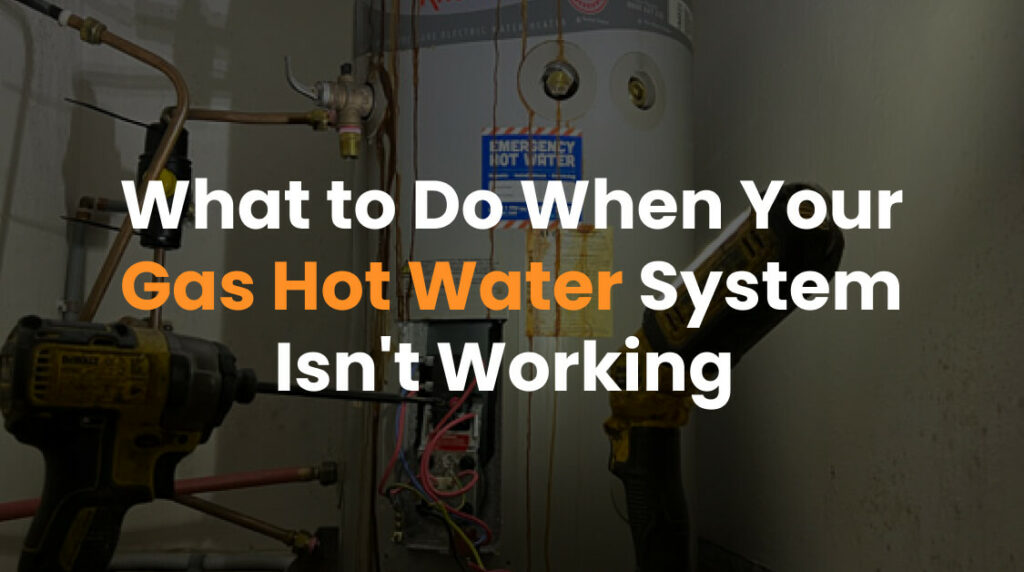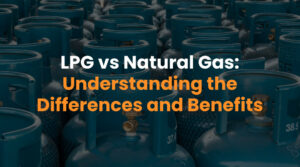When your gas hot water system stops working, it can disrupt daily life significantly. Understanding the signs of a malfunction and knowing the initial steps to take can help mitigate the impact and potentially resolve common issues. This guide outlines key signs to watch for and immediate actions to take, ensuring your system operates safely and efficiently, in compliance with Australian law.
Recognising the Signs of a Malfunctioning Gas Hot Water System
No Hot Water: The First Sign of Trouble
The absence of hot water is often the first indicator of a problem. This could be due to issues with the gas supply, such as the gas valve being turned off or a fault in the gas line. Before proceeding, ensure the gas valve meter is open, and there’s no smell indicating a gas leak. If gas is flowing but the problem persists, the water heater’s pilot light or gas burner may need attention.
Fluctuating Water Temperatures
If you’re experiencing water temperatures that shift from hot to cold without warning, the problem may lie within the gas hot water system’s thermostat or due to insufficient gas pressure affecting the heating system. Instantaneous gas hot water systems require moderate to high water flow to ignite and maintain the gas burner, so check for any issues in water flow or pressure.
Unusual Noises from the Heater
Sounds like banging, whistling, or popping from the heater can indicate sediment build-up at the bottom of the tank, affecting water heating efficiency. Regularly flushing your water heater can prevent these sounds and maintain the system’s health.
Water Leaks Around the System
Leaking water can signal various issues, from a loose connection to pressure build-up inside the tank. If your water heater is leaking, turning off the gas and water supply to the unit can prevent further damage. It’s essential to address leaks promptly to avoid water damage and system failure.
Discoloured Water or Unpleasant Smell
Rusty or discoloured water, along with an unusual smell, could point to corrosion inside the tank or issues with the anode rod. Hard water can also contribute to sediment accumulation, affecting water quality and colour. A water softener can help mitigate these effects, but if the problem persists, consult a professional plumber like Plumbwell Plumbing Services.
Initial Checks: Ensuring Your Safety Before Troubleshooting
Before troubleshooting your gas hot water system, ensure your safety by turning off the power and gas supply if you suspect any leaks or if the system isn’t working properly. Check local gas regulations to ensure compliance.
Troubleshooting 101: Common Issues with Gas Hot Water Systems
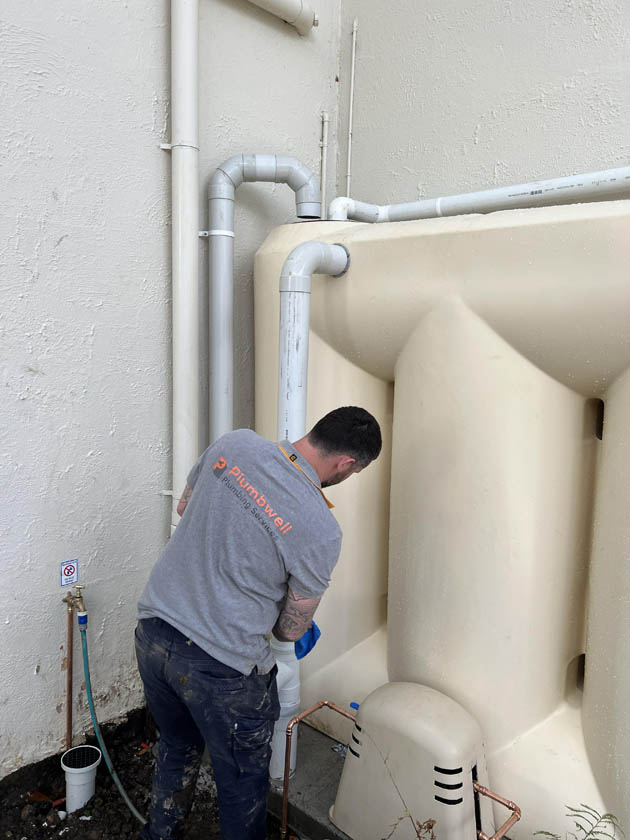
Checking the Gas Supply and Valve
Ensure the gas valve meter is open and that there are no interruptions in the gas supply. A closed valve or insufficient gas can cause water to heat inadequately, leading to lukewarm water or no hot water.
Inspecting the Pilot Light and Thermocouple
A pilot light that won’t stay lit is a common problem, often due to a faulty thermocouple or obstruction. Cleaning the area and ensuring the thermocouple is properly positioned can resolve this issue.
Adjusting the Water Heater’s Thermostat
Incorrect thermostat settings can lead to water that is either too hot or not hot enough. Adjusting the thermostat can help achieve the desired water temperature.
Cleaning the Burner and Ports
A clogged burner or ports can hinder the gas burner from heating the water effectively. Regular cleaning ensures optimal performance and prevents common problems with instant gas hot water systems.
Flushing the Tank to Remove Sediment
Sediment build-up is a common issue, especially in areas with hard water. Flushing the tank annually helps maintain water quality and system efficiency.
Pilot Light Problems: Causes and Solutions
Pilot light issues are a common problem in gas water heaters, leading to a lack of hot water. Various factors, from a faulty gas valve to a depleted gas bottle, can disrupt the pilot light’s function. If the pilot light won’t stay lit, it may signal a deeper issue within your gas hot water system.
The Pilot Light Won’t Stay Lit: Troubleshooting Steps
When facing this issue, start by checking the gas supply. Ensure the gas valve is open, and the gas meter indicates that gas is being supplied. Sometimes, air in the gas line or a faulty gas valve can prevent the pilot light from staying lit. If you smell gas, it’s crucial to turn off the gas immediately and consult with Plumbwell Plumbing Services’ gas plumbers to address potential gas leaks safely.
Cleaning the Pilot Light Orifice and Assembly
Dirt and debris can obstruct the pilot light orifice, affecting the flow of gas and, consequently, the water heating process. Careful cleaning of the orifice and assembly can often restore functionality, ensuring that water is heated efficiently for your hot water tap.
Replacing a Faulty Thermocouple
A faulty thermocouple can prevent the gas valve from opening, stopping the gas flow necessary for heating the water. Replacing the thermocouple is a common solution for maintaining the pilot light’s functionality and, by extension, the water heater’s operation.
Ensuring Proper Ventilation for the Pilot Light
Proper ventilation is crucial for the pilot light to function correctly. Insufficient ventilation can cause the pilot light to extinguish due to a lack of oxygen, leading to issues with heating the water. Ensuring that the area around the water heater is clear and well-ventilated can help prevent these issues.
When to Replace the Entire Gas Control Valve
In some cases, if the pilot light problems persist despite troubleshooting efforts, it may be necessary to replace the entire gas control valve. This step is usually recommended when the valve is faulty and affects the regulation of gas flow, impacting the efficiency of the water heating process.
Investigating Water Temperature Issues
Water temperature inconsistencies in your gas hot water system can be indicative of various underlying issues. Understanding these can help in pinpointing and addressing the cause effectively.
-
- Fluctuating Water Pressures:
-
- Lukewarm water or fluctuations between hot and cold may be related to water pressure issues.
-
- Instant gas hot water systems need specific water pressure levels to function optimally. Low pressure or flow restrictions can lead to inconsistent heating.
-
- Fluctuating Water Pressures:
-
- Sediment Build-up:
-
- Accumulation of sediment at the bottom of the tank or within plumbing lines can interfere with efficient water heating.
-
- Regular flushing of the water heater or professional cleaning by a plumber can mitigate this issue, restoring the system’s heating capability.
-
- Sediment Build-up:
-
- Thermostat Malfunctions:
-
- If water is consistently too hot, adjusting the water heater thermostat might offer a temporary solution.
-
- Persistent temperature inconsistencies, despite adjustments, suggest a malfunctioning thermostat or another significant component issue.
-
- Thermostat Malfunctions:
Discoloured water emanating from your gas hot water system can be alarming and is often indicative of underlying issues requiring immediate attention. This problem, affecting both the quality of your residential water and the integrity of your plumbing and gas system, can stem from various sources:
-
- Sediment Build-Up: Over time, sediment can accumulate at the bottom of the tank, especially in regions with hard water. This can cause water discolouration as minerals and debris are stirred up whenever water is heated.
-
- Corrosion Inside the Tank: The interior of water heaters can corrode over time, leading to rust and other contaminants mixing with the water. This is particularly true for older gas water heater models, where the protective lining may have worn away.
-
- Bacterial Growth: In some cases, discoloured water, especially if accompanied by a foul odour, could be a sign of bacterial growth within the water heater or the water lines.
Solutions:
-
- Regular Flushing: Flushing your water heater regularly can remove sediment build-up, mitigating the risk of discoloured water.
-
- Anode Rod Replacement: The anode rod helps protect the tank from corrosion. Checking and replacing this rod as needed can prevent rust and corrosion from tainting your water supply.
-
- System Inspection and Cleaning: If discolouration persists, a comprehensive inspection and cleaning by a professional plumber or water heater specialist might be necessary to address and rectify the root causes.
By understanding and addressing the potential causes of discoloured water, homeowners can ensure the longevity and efficiency of their gas hot water systems, maintaining the safety and quality of their hot water supply.
Leak Detection and Repair in Gas Water Heaters
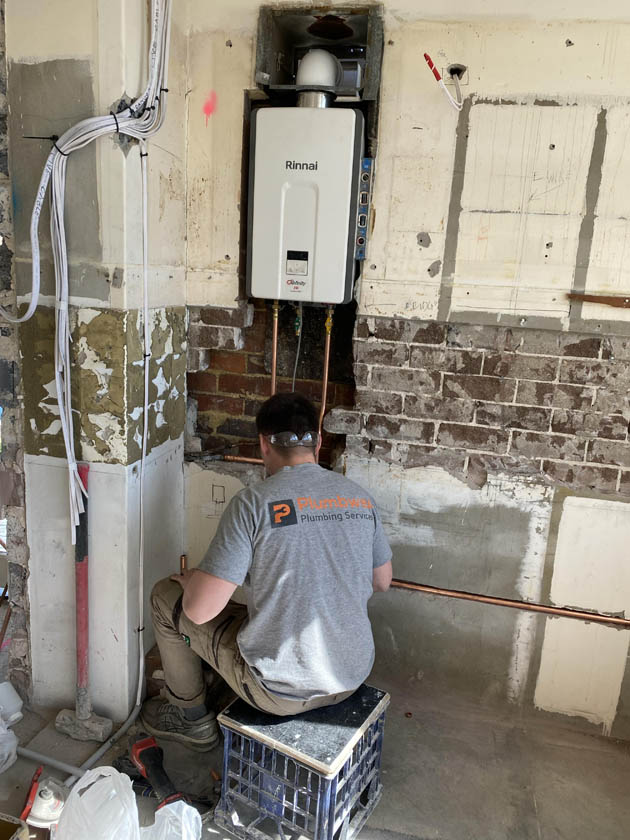
Leaks in a gas water heater not only lead to water wastage but can also signify serious problems that might compromise the system’s safety and efficiency. Identifying and addressing leaks promptly is crucial:
-
- Visual Inspection: Regularly inspect your water heater and the surrounding area for signs of moisture or pooling water. Even minor leaks can escalate quickly, causing significant damage.
-
- Check Connections and Valves: Leaks often occur at connection points, valves, or the tank itself. Inspecting these areas can help pinpoint the source of the leak.
-
- Pressure Relief Valve: The pressure relief valve is a common leak point and is designed to release water if pressure or temperature inside the tank gets too high. However, if leaking persists, it may indicate a problem with the valve or excessive pressure build-up in the tank.
Solutions:
-
- Tightening Connections: Sometimes, leaks can be resolved by simply tightening loose connections or replacing worn-out washers.
-
- Valve Replacement: If the pressure relief valve or any other valve is faulty, replacing it can often rectify the leak.
-
- Professional Repair: For leaks stemming from the tank or for those that cannot be easily identified and fixed, seeking professional repair services is advisable. Certified plumbers or gas hot water repair specialists like Plumbwell Plumbing Services can offer the expertise required for safe and effective repairs.
Preventive Maintenance: Keeping Your Gas Hot Water Heater in Top Shape
Proactive maintenance is crucial for avoiding gas hot water system problems and ensuring your water heater operates efficiently and safely. Regular attention can prevent common issues that lead to not getting any hot water, discoloured water, or leaks. Here are key maintenance steps to keep your gas hot water heater, whether it’s a storage hot water system or an instant hot water system, in optimal condition:
-
- Scheduling Regular Inspections: Annual inspections by a professional can identify potential gas hot water problems early, ensuring components like the gas valve and the pilot light are functioning correctly. This is essential for both traditional and instant gas water systems.
-
- Replacing the Anode Rod to Prevent Corrosion: The anode rod protects the inside of your tank from corrosion. Over time, the rod can wear out, especially in areas with hard water, leading to water heater issues. Regular checks and replacement when needed can extend the life of your water heater.
-
- Flushing the Tank Annually: Sediment build-up at the bottom of the tank can lead to inefficiency and overheating. Flushing the tank helps remove these sediments, ensuring the water is heated efficiently and reducing the risk of lukewarm water coming out when the hot water tap is turned.
-
- Checking and Cleaning the Air Intake Filters: For gas water heaters, including both electric and gas models, clear air intake filters are vital for safe operation. Blocked filters can restrict airflow, affecting combustion and the efficiency of heating water.
-
- Testing the Temperature and Pressure Relief Valve: This safety valve releases water if the pressure inside the tank or the temperature gets too high. Testing and ensuring it’s working properly can prevent dangerous pressure build-up.
-
- Monitoring for Leaks and Drips: Regularly check around the base of your water heater and along connecting pipes for any signs of leaks or drips. Early detection of leaks can prevent water damage and system failure.
-
- Ensuring Proper Ventilation: Adequate ventilation is crucial for the safe operation of gas water heaters. It prevents the build-up of harmful gases and ensures the combustion process is efficient.
-
- Adjusting the Thermostat for Efficiency and Safety: Setting the thermostat to an appropriate temperature (typically around 49-54°C) can prevent scalding and save energy. Water that may be too hot is not just a safety risk but can also indicate a malfunctioning thermostat.
-
- Keeping the Area Around the Heater Clear: Ensuring the area around your gas hot water heater is clear from clutter can reduce fire risks and allow for adequate ventilation, essential for both storage and continuous flow systems.
When to Call a Professional: Beyond Basic Troubleshooting
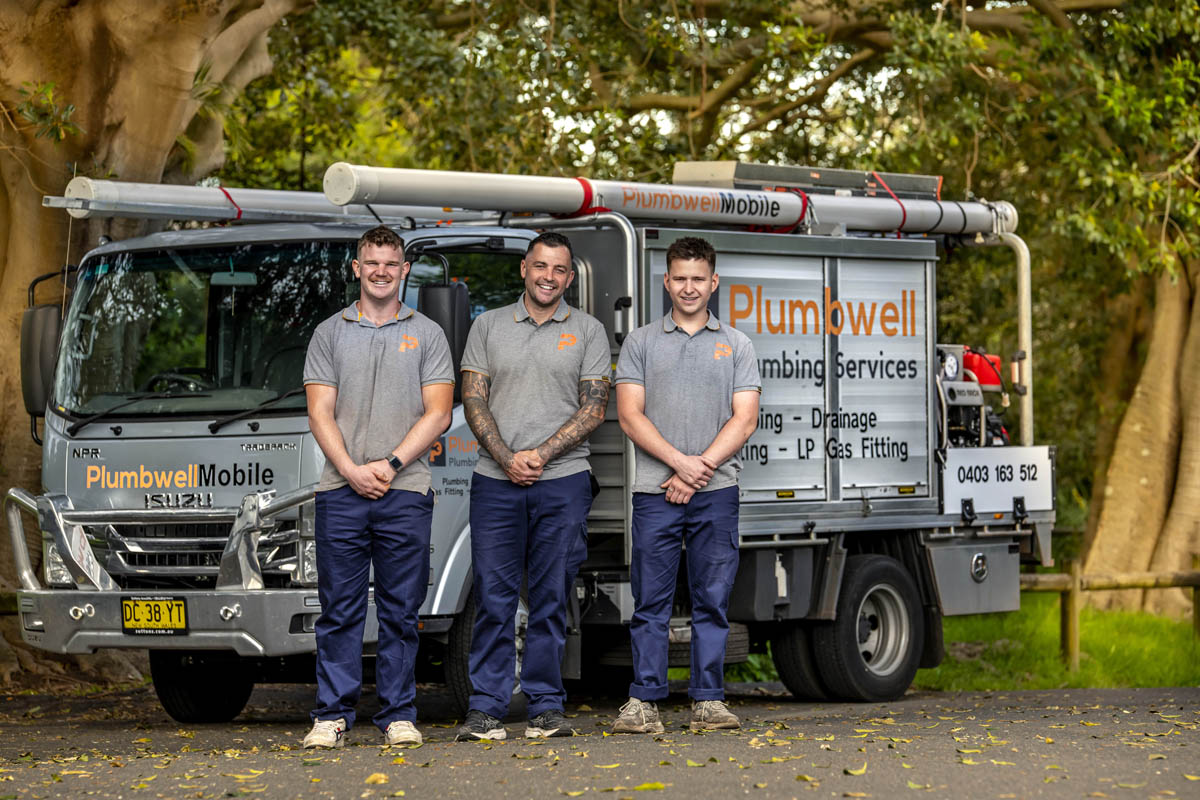
While regular maintenance and basic troubleshooting can resolve many common issues with gas hot water systems, certain situations require the expertise of a professional. Recognising when to seek professional help is crucial to prevent further damage, ensure safety, and maintain the efficiency of your water heating system. Here are scenarios where calling a professional is advised:
-
- Persistent Issues: If problems persist despite your troubleshooting efforts, such as consistent lack of hot water, discoloured water, or irregular water temperatures, professional intervention is necessary.
-
- Gas Smell: Any smell of gas near your water heater is a serious safety risk, indicating a potential gas leak. This requires immediate attention from a certified gas plumber to ensure safety and prevent potential hazards.
-
- Water Leaks: While some leaks can be fixed with simple adjustments, significant or continuous leaking suggests a more severe problem that could lead to water damage and system failure.
-
- System Upgrades or Replacements: Installing a new gas hot water system or upgrading components, such as the gas valve or pressure relief valve, should be handled by professionals to ensure correct installation and compliance with local regulations.
-
- Annual Inspections: Even if your gas hot water system seems to be working fine, annual inspections by a professional can uncover hidden issues and ensure your system is operating efficiently.
Conclusion: Ensuring Continuous Hot Water Supply
Ensuring a reliable hot water supply hinges on timely maintenance and recognising when professional assistance is necessary. For complex issues with your gas hot water system or for annual checks, Plumbwell Plumbing Services in Sydney is your go-to solution. Don’t hesitate to reach out for expert support to keep your system running smoothly.
Contact Plumbwell Plumbing Services at (02) 9064 2861 for all your hot water system needs, from repairs to regular maintenance.

